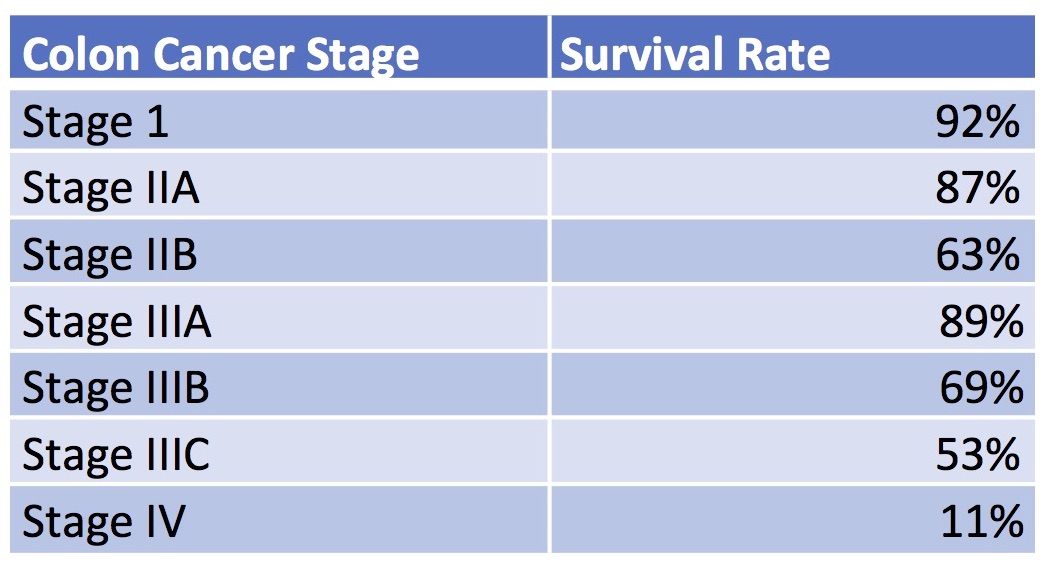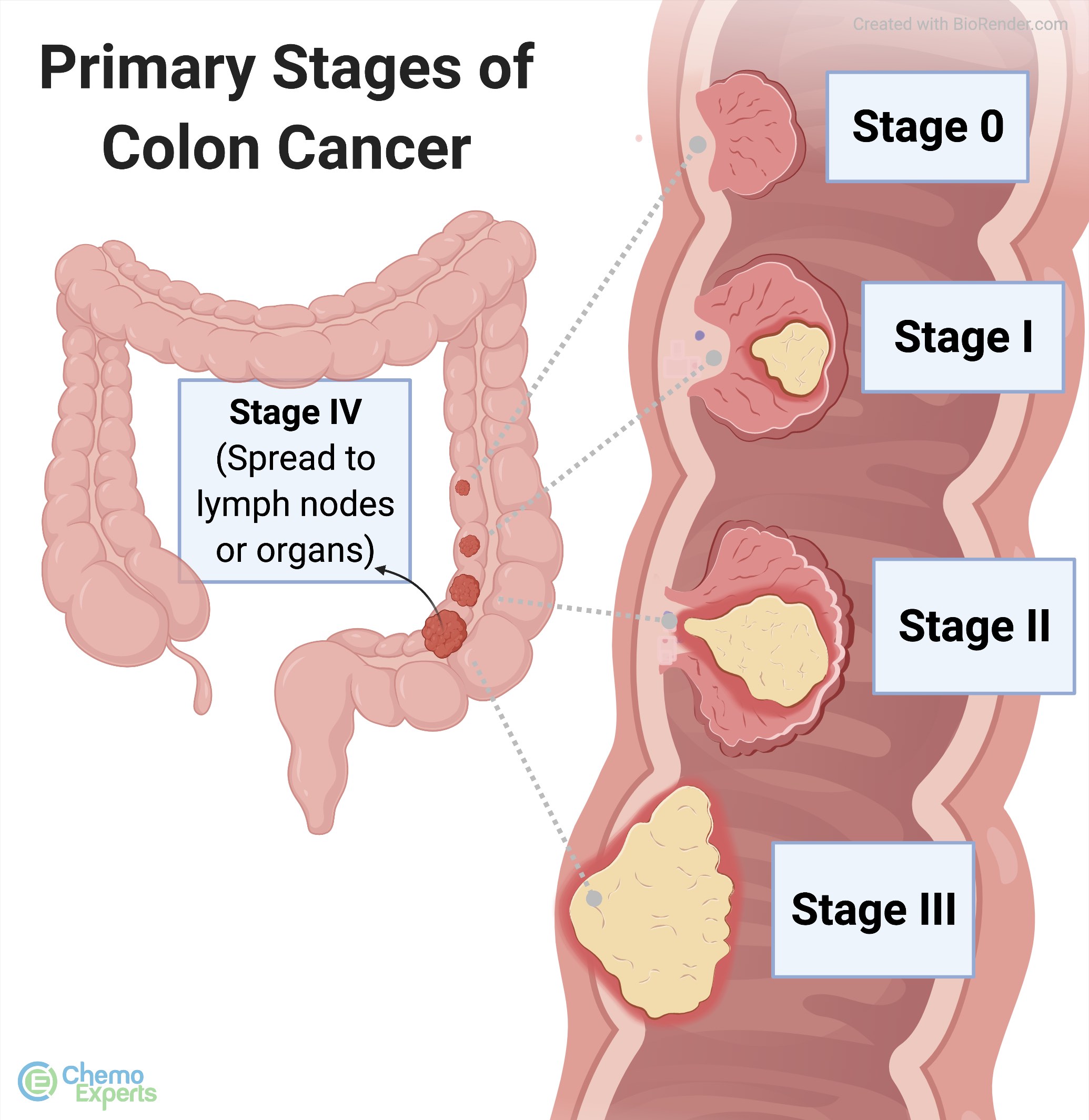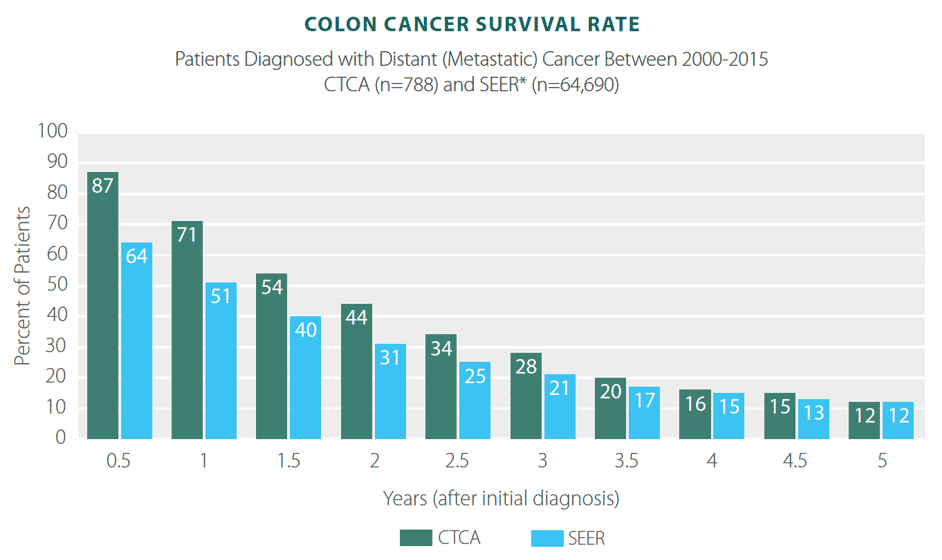Stage 4 colon cancer is one of the most challenging diagnoses a patient can receive. This advanced stage of cancer means that the disease has spread beyond the colon to other parts of the body, typically the liver or lungs. The prognosis for those diagnosed with stage 4 colon cancer can be daunting, and understanding the survival rate is crucial for patients and their families. Awareness of the stage 4 colon cancer survival rate can provide insights into treatment options and the importance of early detection.
Many individuals facing a stage 4 colon cancer diagnosis may find themselves overwhelmed with questions regarding their future. Factors such as age, overall health, and the specific characteristics of the cancer can all influence survival rates. Therefore, it is essential to approach this diagnosis with a combination of hope, information, and proactive treatment strategies. The survival rate for stage 4 colon cancer varies considerably, and understanding these statistics can help patients make informed decisions about their treatment.
Furthermore, the emotional and psychological impact of a stage 4 colon cancer diagnosis cannot be understated. Patients and their loved ones often experience a whirlwind of emotions, from fear and anxiety to hope and determination. By exploring the stage 4 colon cancer survival rate and the factors that influence it, individuals can gain a clearer understanding of their situation and the potential paths forward. This article aims to provide a comprehensive overview of survival rates, treatment options, and the importance of support systems in the journey of battling this advanced stage of cancer.
- Exploring The Age Difference Between Dakota Johnson And Chris Martin
- Brittney Griner A Journey From Birth To Stardom
What is the Stage 4 Colon Cancer Survival Rate?
The stage 4 colon cancer survival rate is an important statistic that reflects the percentage of patients who survive for a specific period after their diagnosis. Typically, survival rates are calculated based on a five-year timeframe. For stage 4 colon cancer, the five-year survival rate is significantly lower compared to earlier stages, primarily due to the advanced nature of the disease at this point.
How Do Survival Rates Vary Among Different Patients?
Survival rates for stage 4 colon cancer are not uniform and can vary based on several factors, including:
- Age: Younger patients often have better outcomes.
- Overall Health: Pre-existing health conditions can affect treatment options and outcomes.
- Response to Treatment: Some patients may respond exceptionally well to chemotherapy or targeted therapies.
- Extent of Disease Spread: The number of metastases and their locations can influence survival.
What Treatment Options Are Available for Stage 4 Colon Cancer?
Patients diagnosed with stage 4 colon cancer have several treatment options available to them, each tailored to their specific situation. Common treatments include:
- Surgery: In some cases, surgery may be performed to remove tumors or relieve blockages.
- Chemotherapy: This is often the primary treatment for stage 4 colon cancer, targeting cancer cells to slow growth and spread.
- Targeted Therapy: These drugs target specific pathways involved in cancer growth.
- Immunotherapy: This helps the body’s immune system fight cancer cells more effectively.
What Role Does Early Detection Play in Survival Rates?
While early detection is crucial for improving survival rates in any cancer, it holds particular significance for colon cancer. Regular screening, such as colonoscopies, can detect cancer at an earlier stage when it is more treatable. For patients diagnosed at stage 4, awareness of symptoms such as changes in bowel habits, unexplained weight loss, and abdominal pain is vital for seeking timely medical advice.
Can Lifestyle Choices Impact the Stage 4 Colon Cancer Survival Rate?
Absolutely! Lifestyle choices can play a significant role in a patient’s overall health and response to treatment. Consider the following:
- Nutrition: A balanced diet rich in fruits, vegetables, and whole grains can aid in recovery.
- Exercise: Regular physical activity can improve physical and emotional well-being.
- Avoiding Tobacco and Limiting Alcohol: These substances can negatively impact treatment outcomes.
What Support Systems Are Available for Patients and Families?
Support is crucial for individuals battling stage 4 colon cancer and their families. Various resources are available, including:
- Support Groups: Connecting with others facing similar challenges can provide emotional relief.
- Counseling Services: Professional counseling can help manage anxiety and depression.
- Online Resources: Numerous websites offer information, forums, and support networks.
What Hope Is There for the Future of Stage 4 Colon Cancer Treatment?
Research and advancements in cancer treatment are ongoing, providing hope for patients diagnosed with stage 4 colon cancer. Innovations in personalized medicine, immunotherapy, and advanced surgical techniques are continuously being developed to improve survival rates and quality of life for patients. While the journey may be challenging, many individuals are finding ways to live meaningful lives even after a stage 4 diagnosis.
Conclusion: Understanding the Journey Ahead
In conclusion, while the stage 4 colon cancer survival rate can seem discouraging, it is essential to remember that every patient’s journey is unique. Factors such as age, health, and treatment response can significantly influence outcomes. By staying informed, seeking support, and making proactive lifestyle choices, patients can navigate this difficult diagnosis with courage and hope for a better tomorrow.
- Brittney Griner Understanding Her Biological Gender
- Tragic News Justin Beber Death Shocks Fans Worldwide


